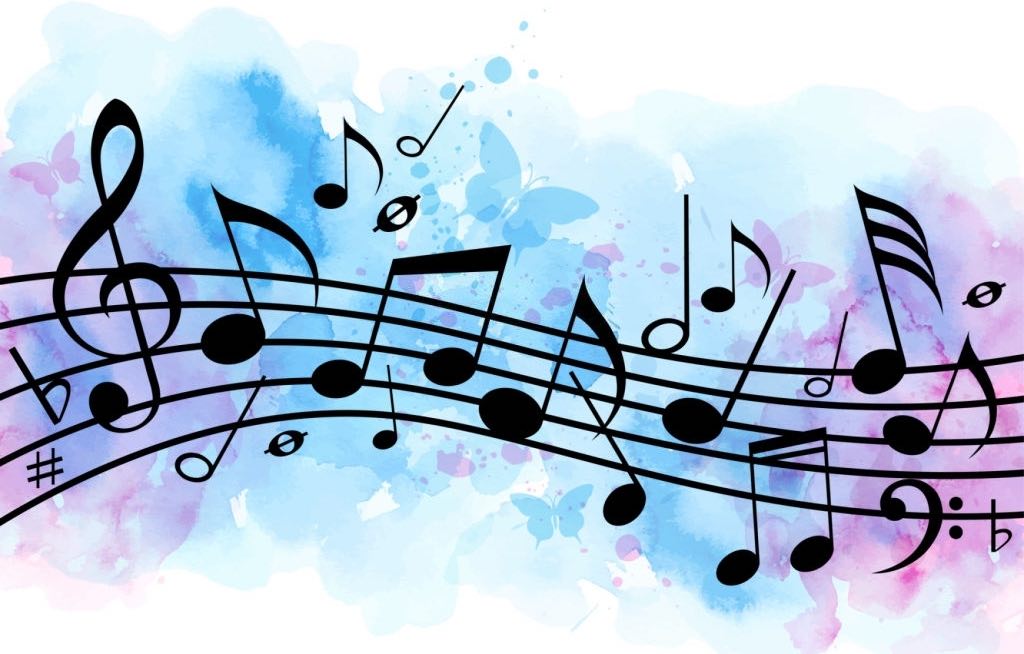The Influence of Songs on Feelings and Mental Wellness
In the realm of psychology and wellness, the extensive effect of songs on feelings and mental well-being has actually long been a topic of interest and study. The elaborate relationship in between the tunes we hear and the emotions we feel is a complex interplay that practitioners and researchers have actually been discovering for decades. From influencing state of mind to functioning as an effective tool for stress and anxiety management, songs's role in forming mental wellness is deserving and multifaceted of additional exploration. As we browse the subtleties of exactly how music intertwines with our psychological landscape and psychological wellness, a much deeper understanding of its prospective to uplift, calm, or prompt thought arises, inviting us to ponder the importance of this global language in our day-to-days live.
Influence of Songs on State Of Mind

Research has actually shown that music can modulate state of mind by turning on neural pathways connected with feelings in the mind. Paying attention to music can stimulate the release of neurotransmitters like dopamine and serotonin, which are known to control mood and feelings. This physiological feedback to music explains why certain songs can instantaneously uplift our spirits or bring splits to our eyes. Understanding exactly how music influences state of mind can have significant ramifications for making use of music as a healing device for psychological law and psychological wellness.
Connection In Between Music and Stress And Anxiety
The interaction in between musical stimulations and the human reaction to anxiety has been a topic of expanding passion in the areas of psychology and neuroscience (MUSIC). Music has shown amazing capacity in mitigating anxiety degrees and promoting leisure. Research studies have actually shown that paying attention to songs can lead to physiological modifications in the body, such as minimized heart rate, reduced high blood pressure, and reduced levels of cortisol - a hormone connected with stress and anxiety
The link in between songs and stress and anxiety alleviation is thought to be closely linked to the impact of songs on the limbic system, which plays a vital duty in feelings and tension responses. Specific kinds of music, such as classical or ambient songs, have this post been found to be especially effective in inducing a sense of calm and leisure. In addition, personal songs choices can also influence the stress-reducing effects of songs, highlighting the relevance of individualized strategies when using music as a stress and anxiety monitoring device. Additional research in this location holds pledge for the development of music-based interventions to help individuals handle anxiety better.
Songs as a Healing Device

Study has actually shown that music therapy can considerably lower anxiety, depression, and persistent discomfort. Music has the capacity to evoke memories, promote favorable feelings, and give a feeling of comfort and relaxation.
Influence of Music on Mental Wellness

Music has been found to have profound impacts on mental wellness by influencing state of mind, decreasing stress and anxiety, and improving overall wellness. Additionally, music therapy, an organized use of songs to boost investigate this site mental health end results, has actually been revealed to be useful for individuals with different mental health conditions, including post-traumatic anxiety problem (PTSD), schizophrenia, and dementia. On the whole, the impact of songs on psychological wellness is an appealing area of study that provides possible restorative advantages for individuals encountering numerous psychological health and wellness challenges.
Ways to Integrate Songs for Wellness
Music has the power to evoke feelings and influence our mental state, making it an important device for promoting well-being. One way to include music for wellness is by producing playlists that reverberate with certain emotions or objectives.
One more method to use music for wellness is with active listening. Putting in the time to genuinely involve with the music, concentrating on the lyrics, instruments, and overall structure, can grow the psychological link and magnify the healing results. This conscious approach to listening can help individuals process feelings, lower anxiousness, and improve total psychological wellness.
Additionally, going to online music occasions or performances can also add to well-being by giving a sense of pleasure, area, and link. Becoming part of a common music experience can uplift spirits, cultivate a sense of belonging, and create long-term memories that favorably impact psychological wellness.
Conclusion
In conclusion, music has a significant impact on emotions and mental health. It is essential to acknowledge the power of songs in promoting emotional equilibrium and psychological clearness.
The connection between music and state of mind is intricate, with different elements of songs such as pitch, read this article tempo, and mode having fun vital functions in generating psychological actions. Recognizing how songs influences mood can have significant implications for utilizing music as a restorative device for emotional law and psychological well-being.
The link in between songs and tension relief is thought to be closely connected to the influence of songs on the limbic system, which plays a vital function in emotions and stress feedbacks. Furthermore, personal songs preferences can also influence the stress-reducing results of songs, highlighting the value of customized techniques when using songs as a stress administration device. In addition, music treatment, a structured use of music to improve mental health and wellness end results, has been revealed to be advantageous for individuals with numerous mental health and wellness conditions, consisting of post-traumatic anxiety problem (PTSD), schizophrenia, and mental deterioration.